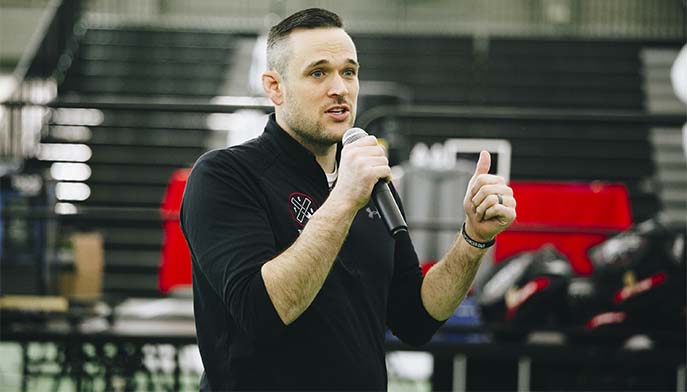Fairfield News
Fairfield News in Your Inbox
Questions for Us?
Contact our Public Relations Team

The Stags won seven MAAC Championships and eight total conference titles in 2024-25.
I think my time in the Dolan School of Business helped me get used to being pushed out of my comfort zone, which is the only place where you can find growth.”

Contact our Public Relations Team
